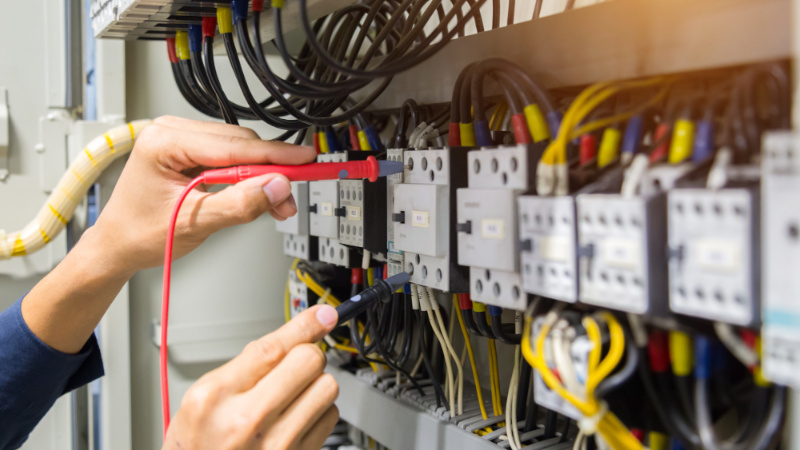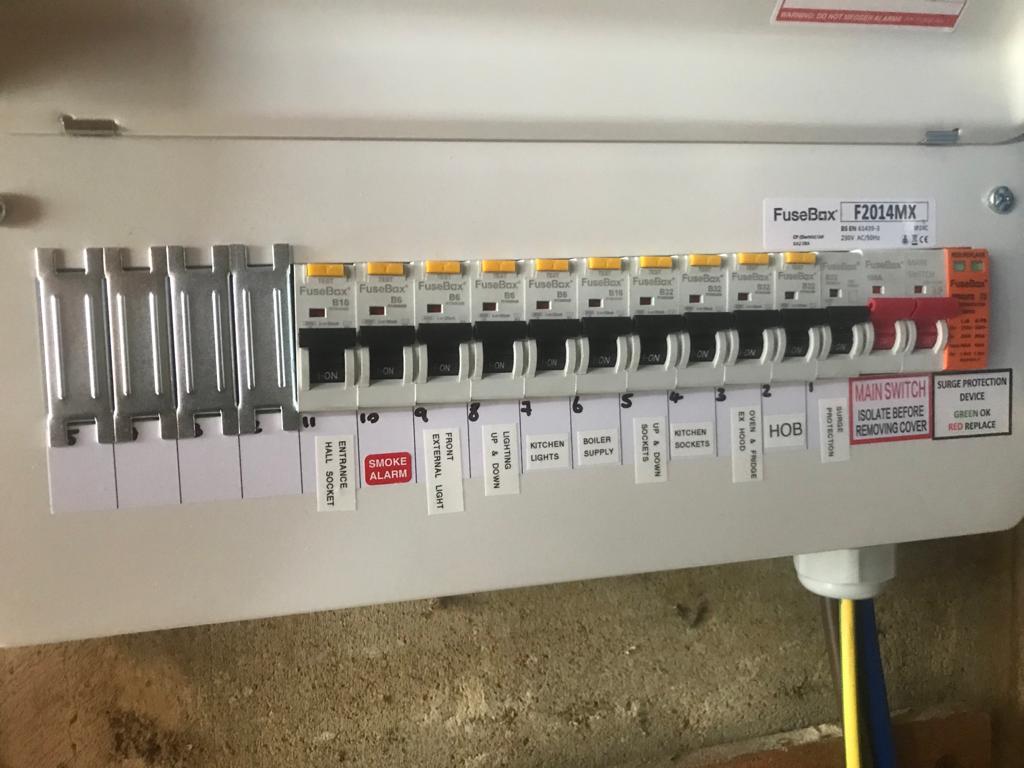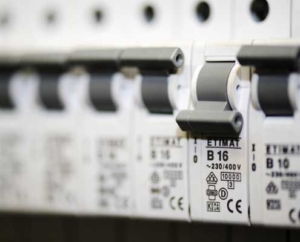What is an MCB?
Electrical wiring and electrical systems are essential to any building landscape. Therefore, to ensure this electricity’s safe and efficient distribution, electrical systems incorporate various protective devices at the fuse board or consumer unit. One such device is the Miniature Circuit Breaker, commonly known as an MCB. So, what is an MCB?
This article will explore the functions, features, and importance of an MCB in electrical systems and within the fuse board.
we also look at the overall role of Circuit Breakers in this article “What are Circuit Breakers”
The role of Electrical Circuit Breakers
First and foremost, an MCB is a protective device used in electrical installations to protect against
- Overcurrent
- Short Circuits
It acts as a failsafe switch that automatically interrupts the flow of electricity when abnormal conditions occur. These could include.
- Excessive current
- An electrical fault
Therefore, this interruption helps prevent electrical equipment from
- Damage
- Electrical fires
- Potential harm to individuals.
MCB and Overcurrent
One of the primary functions of an MCB is to protect electrical circuits from overcurrent.
Overcurrent can occur due to various reasons. These include.
- Equipment malfunctions
- Short circuits
- Excessive loads on the electrical circuit.
When the current exceeds the rated capacity of the circuit, the MCB detects this abnormality and trips. Thus, the MCB trips and disconnects the circuit from the power supply. Therefore, this prevents the electrical wiring from overheating and potentially causing damage to the electrical equipment or wiring. Furthermore, it avoids personal injury.
Additionally, an MCB offers protection against short circuits. A short circuit occurs when there is a direct connection between the live and neutral conductors or when a conductive path with low resistance is created in the electrical wiring. In such situations, a high amount of current flows through the circuit. This excessive current poses a significant risk of fire or equipment damage. The MCB quickly detects the excessive current and interrupts the circuit. Thus, the breaker trip prevents further damage and ensures safety.
Features of an MCB
The features of an MCB contribute to its effectiveness and reliability. An MCB device is designed to trip quickly when unusual electrical conditions are detected. Thereby, the interruption on the breaker minimises the duration of the fault and reduces the risk of damage. MCBs are also resettable. Therefore, they allow for easy power restoration once the electrical fault has been rectified. The advantage of this is that it eliminates the need to replace fuses. Fuses are one-time-use devices.
MCBs come in various current ratings to accommodate different electrical circuits and loads. This flexibility enables the selection of the appropriate MCB based on the specific requirements of the electrical circuit.
MCBs also offer selective tripping, meaning only the faulty circuit is isolated while the rest of the system remains operational. Thus, selective tripping enhances the overall reliability and continuity of the electrical supply.
For example, if you have a faulty item of electrical equipment in the kitchen, that kitchen circuit with that item will only trip. The rest of the floor will remain operational.
The Importance of an MCB
The importance of MCBs in electrical systems cannot be overstated. Firstly, they provide essential protection against electrical hazards. Thus, MCBs, prevent potential damage to equipment, property, and human life. By interrupting the flow of electricity during unusual conditions, MCBs contribute to electrical installations’ overall safety and stability.
Furthermore, MCBs are user-friendly and easy to install. An MCB device can be incorporated into the main distribution or sub-distribution boards. Thus, this set of breakers ensures effective protection throughout the electrical system. Their compact size allows for space-efficient installation. Therefore, their small size makes them suitable for both residential and commercial applications.
What is an MCB Summary
In conclusion, a Miniature Circuit Breaker (MCB) is a crucial protective device in electrical systems. MCBs play a vital role in preventing electrical hazards by detecting and interrupting abnormal currents and short circuits. Thus, MCB devices ensure the safety of electrical installations. With their quick tripping, resettable nature, and various current ratings, MCBs provide effective and reliable protection.
Therefore, incorporating MCBs into electrical systems is essential for maintaining the integrity and safety of electrical circuits. In summary, these breakers contribute to the overall well-being of yourself and your employees and the proper functioning of electrical wiring and equipment.
For additional electrical articles please visit our main BLOG page here





